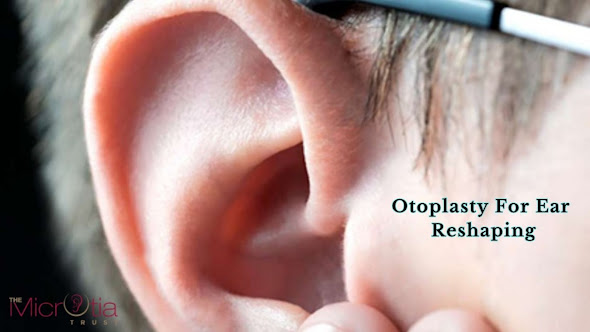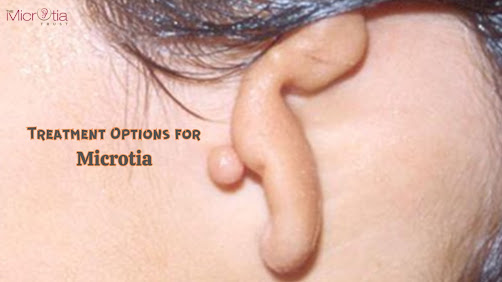Otoplasty For Ear Reshaping
Cosmetic ear surgery is a surgical procedure that modifies the shape, placement, or size of the ears. One such popular procedure is otoplasty, which helps to correct prominent ears.
One can consider undergoing otoplasty surgery if disturbed by how much the ears protrude from the skull.
Otoplasty can be performed at any age once the ears have achieved their full size- generally after age 5- and continues throughout adulthood.
If a kid is born with prominent ears or other ear-shaped concerns, splinting may successfully repair these difficulties if begun soon after birth.
Searching for the clinic that offers the best otoplasty surgery near me. Then make a visit to The Microtia Trust, a leading ear cosmetic surgery clinic that performs all types of ear cosmetic and reconstructive surgeries.
How to prepare for Otoplasty
One will consult with a plastic surgeon, Dr. Parag Telang, at The Microtia Trust regarding otoplasty. The plastic surgeon will most likely: at the initial consultation:
• Examine the medical history. Prepare to answer inquiries regarding current and previous medical issues, particularly ear infections. The doctor may also inquire about any drugs one has recently taken, and any procedures have had.
• Perform a physical examination. The doctor will evaluate the ears to assess the treatment choices, including their area, size, shape, and symmetry. The doctor may also photograph the ears for the medical record.
• Talk about your expectations. The doctor will most likely ask why one desires otoplasty and what results the treatment anticipates. Make sure you are aware of the risks of otoplasty, such as the likelihood of overcorrection.
If one is a suitable candidate for otoplasty, the doctor may advise to take some precautions before the treatment.
Procedure for Otoplasty
Otoplasty surgery is often performed at any age, beginning at the age of seven. When the ear cartilage is developed enough to shape, and the child is old enough to cooperate with the operation and aftercare, now is the time to do it. Permanent sutures are used to redefine the typical curvature of the ear.
In children, the surgery is conducted under general anesthesia, whereas in adults, it is performed under local anesthesia. Following that, correct marks are made. As each ear's anatomical problem demands its individual remedy, the surgical procedure that corrects projecting ears helps generate or enhance the anti-helical fold and lowers swollen conchal cartilage. This permits the surgeon to use sutures to adjust the location and restructure the ear cartilage. As a result, folds are produced if they are missing during surgery, superfluous cartilage is excised, and sutures are used to bind the ear to the skull.
The scars from otoplasty are all hidden behind the ear; therefore, they are not noticeable. To enhance the contour of the ear, a combination of scraping the cartilage and stitching may be utilized. Additional sutures may be used to draw the whole ear closer to the side of the head and to correct ear lobe prominence. After that, the wounds are closed, and a head bandage is placed. Patients are often dismissed on the same day.
After the procedure
Following otoplasty, the ears will be bandaged for protection and support.
One may feel irritated and uncomfortable. Take pain medicines exactly as directed by the doctor. If one is taking pain medication and your condition worsens, contact your doctor straight away.
Avoid sleeping on the side to prevent pressure off your ears. Also, avoid rubbing or applying undue force to the wounds. Consider wearing button-down or loose-fitting collared shirts.
Following the otoplasty, the bandages will be removed. The ears will almost certainly be swollen and red. For a few weeks, one may need to sleep with a loose headband that covers the ears. This will protect the ears from protruding forward as a rollover in bed.
Discuss with the doctor when or if the sutures will be removed. Some sutures fall out on their own. Others must be removed in the weeks following the procedure in the doctor's office.
When it is safe to resume everyday activities such as bathing and physical activity, see your doctor.
Within a week, one can resume routine activities.
Otoplasty Surgery For Prominent Ears
In India, otoplasty is a sort of cosmetic surgical operation of the ears that corrects ear cartilage defects and aids in the creation of a more harmonious face. Otoplasty surgery corrects auricular cartilage abnormalities or anomalies that cause the ear to be detached. It aids in reducing the protrusion of a prominent ear from the temporal scalp.
Otoplasty surgical correction can assist children, adults, and teens alike. As a result of congenital ear defects, the procedure corrects the ear's shape, proportion, and position. This surgery also corrects misshapen ears caused by damage. Finally, the operation restores equilibrium to the proportions of the face and ears.
Risks in the Procedure
Otoplasty, like any other major surgery, carries hazards, including hemorrhage, infection, and an unfavorable response to anesthesia.
Other hazards of otoplasty include:
Scarring. While scars are permanent, they will most likely be buried behind your ears or among the folds of your ears.
Asymmetry in-ear placement may come from changes that occur throughout the healing process. Furthermore, surgery may be ineffective in addressing innate asymmetry.
Changes in skin feeling. The relocation of your ears during otoplasty may temporarily alter cutaneous feeling in the region. Change is rarely permanent.
Allergic response. An allergic reaction to surgical tape or other materials used during or after treatment is possible.
Stitches are causing problems. Stitches used to retain the altered shape of the ear may migrate to the skin's surface and must be removed. As a result, the affected skin may become irritated. As a result, you may need more surgery.
Overcorrection. Otoplasty might result in abnormal shapes that make the ears seem pinned back.
Dr. Parag Telang is the best ear surgeon in India. He performs all types of ear plastic surgeries at his clinic. To learn more about ear reconstructive surgeries, get a consultation with Dr. Parag Telang.
Book an Appointment now.



Comments
Post a Comment